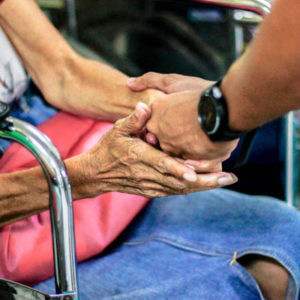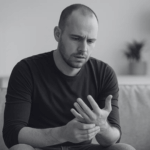 “What would I do without my caregiver?”
“What would I do without my caregiver?”
Many people with Parkinson’s disease ask themselves some form of this question every single day. Caregivers come in all shapes and forms, but they all have one thing in common: The work they do is absolutely critical.
But it’s not an easy job. Far from it. Caring for someone else—especially those with severe or advanced cases of Parkinson’s disease—can be exhausting, draining and even overwhelming.
That’s why we want to take the time to celebrate National Caregivers Month and recognize and salute the outstanding caregivers all over the world.
“There are only four kinds of people in this world: those who have been caregivers, those who are currently caregivers, those who will be caregivers and those who will need caregivers. Caregiving is universal.”
– Rosalynn Carter, former United States First Lady
Caregivers take many forms: They are spouses and children, friends and family, medical professionals and volunteers. “In simple terms, a caregiver is a person who tends to the needs or concerns of a person with short- or long-term limitations due to illness, injury or disability,” say the experts at Hopkinsmedicine.org. They work full- or part-time, and they do many myriad indispensable tasks. Caregivers truly exemplify selflessness, as they often work without recognition, thanks or compensation.
Caregivers engage in tasks like (but not limited to) transportation, shopping, organization, planning, health monitoring, communicating with professionals, acting as advocates, assisting in getting up or active, doing housework, preparing meals, managing finances and so much more.
The need for a care team is vital.
According to MichaelJFox.org, “Care partners play a major role in the well-being of a person with Parkinson’s disease. Care partners take on many responsibilities, from accompanying a loved one to doctor appointments to managing more household responsibilities. For the most part, care partners do not need special medical training. What’s important is establishing a partnership — a mutual understanding of what kind of help with daily tasks and emotional support the person with Parkinson’s wants and needs as the disease impacts your routines and lives.”
And because caregivers are so intensely and consistently engaged, it can be easy for them to “burn out,” or feel so overwhelmed that they can no longer function at a high capacity.
That’s why it’s important for caregivers to remember to care for themselves as well.
Parkinson.org says, “Self-care is the practice of taking an active role in protecting one’s own wellbeing. It is important to retain a meaningful relationship with yourself and manage your own self-care to effectively care for your loved one with Parkinson’s. Your needs are important, too!” After all, it would be impossible to offer care to someone else, when the caregiver is operating at a drastically limited capacity.
Here are some ways to practice self care:
- Talk to a support group or trusted friend
- Write about your feelings and struggles in a journal
- Practice breath work and meditation
- Get active—find a daily exercise routine
Being a caregiver is heroes’ work. But remember: Even heroes need a break every now and then.
For more information about being a caregiver, practicing selfcare or building a care network, visit Parkinson.org and MichaelJFox.org.



